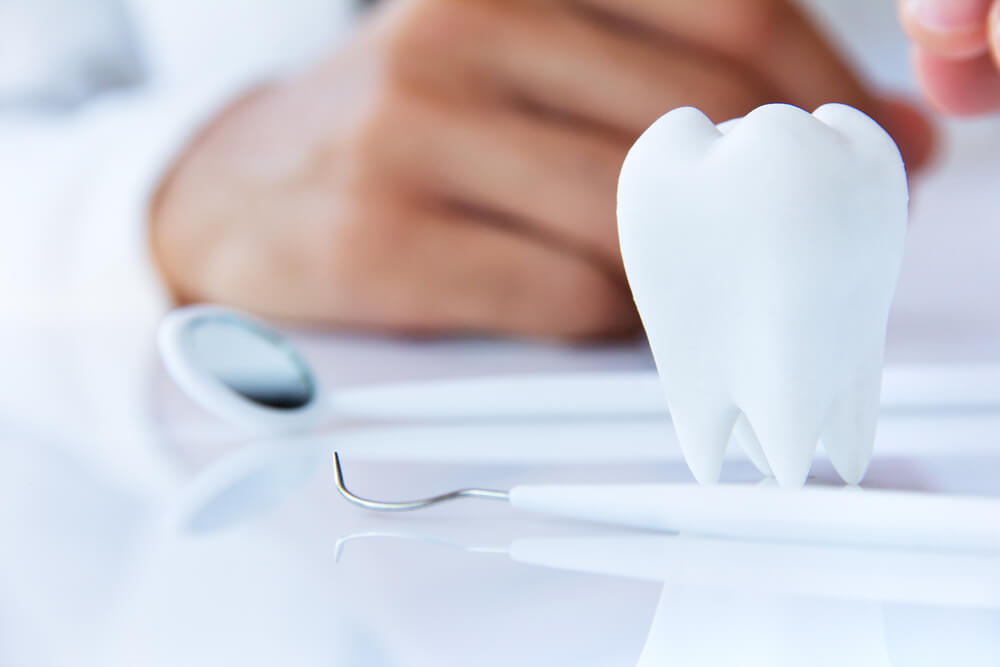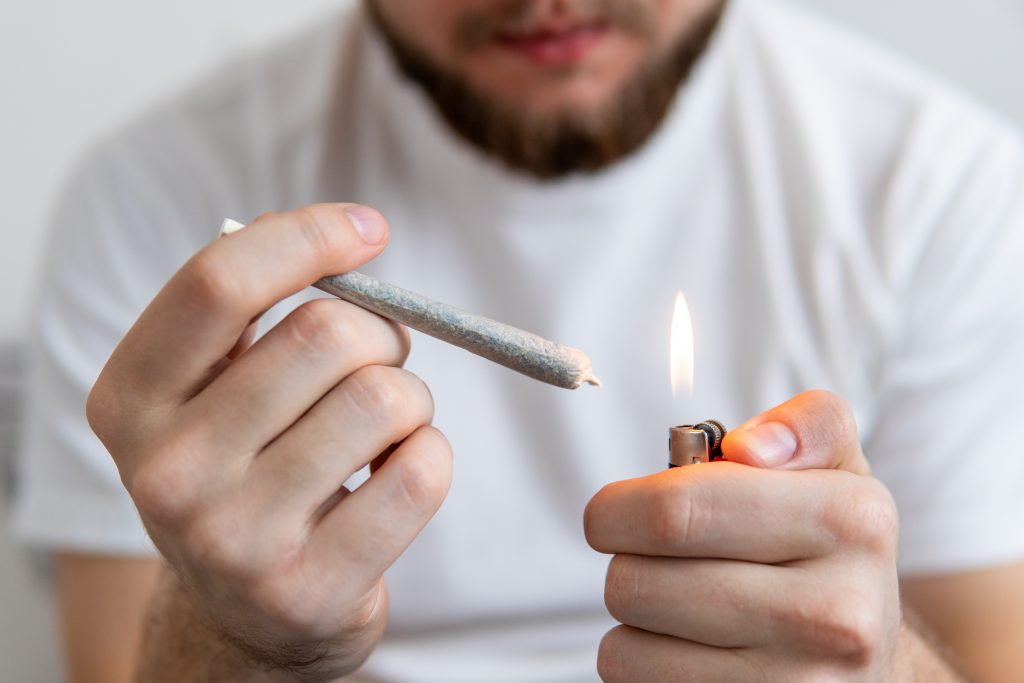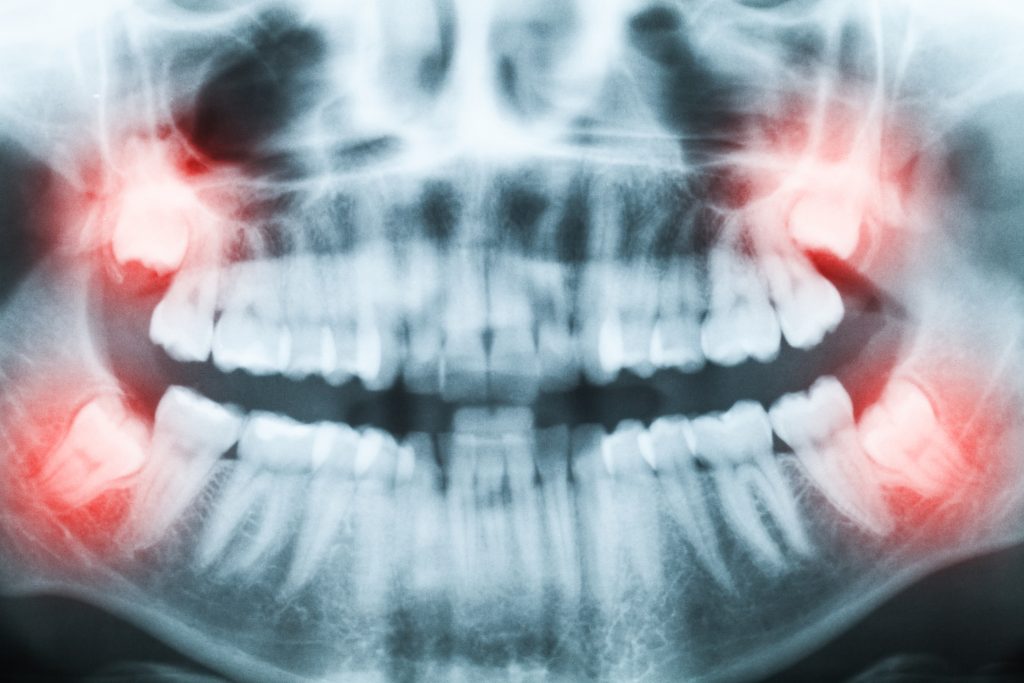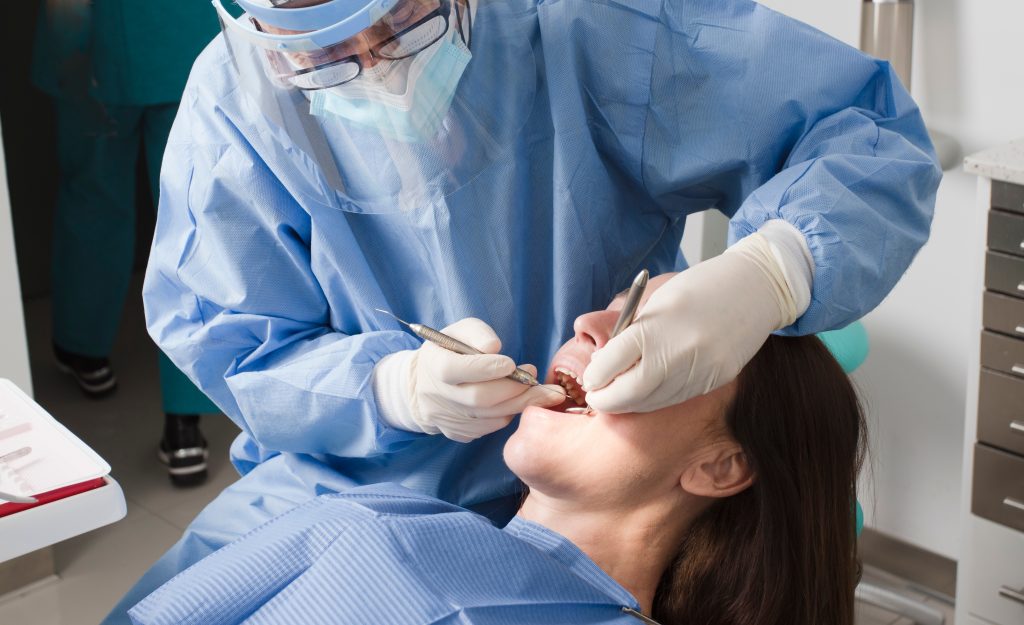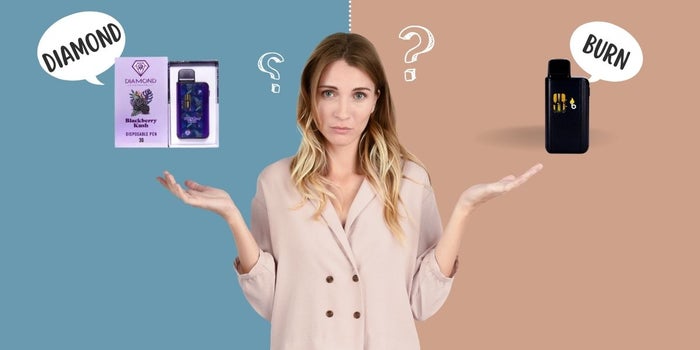Table of Contents
- Smoking Weed after a Tooth Extraction
- Benefits of Smoking Weed after a Tooth Extraction
- Don’t Smoke! Other Ways to Consume Cannabis
- A Final Word
Have you recently had your wisdom teeth pulled? If so, you might be wondering, “Can I smoke weed after a tooth extraction?”
Just hold on a second!
There are a few things you should know about using cannabis after getting wisdom teeth removal surgery, and in this article, we’ll answer all of your questions.
Smoking Weed after a Tooth Extraction
For many of us, intense pain will automatically have us reaching for a joint because cannabis can work wonders for many kinds of aches and body pain. In fact, cannabis’ pain-relieving properties are so effective it has even helped some people quit prescription painkillers altogether.
Many people would avoid using prescription painkillers if they could— even if they got a prescription from the dentist— because of some side effects and how addictive painkillers can be.
But that doesn’t mean you should spark that joint as soon as your oral surgery is done because it can be a big risk of complications that could affect your recovery time.
How soon can I smoke weed after tooth extraction?
Dentists recommend not smoking for at least 48 hours after getting your wisdom teeth pulled.
It’s recommended that you wait to smoke weed at least 48-72 hours before smoking (and even longer if possible) after having tooth removal surgery. If you want your mouth to heal in the quickest and cleanest way, don’t even risk it and abstain from smoking weed for at least five days.
Two to five days of not smoking during the most painful time might seem like a lot to ask. But there are significant reasons to avoid smoking weed after tooth extraction surgery— the main one being Dry Socket.
Dry Socket
Alveolar osteitis, more commonly referred to as Dry Socket, is a painful dental condition that can occur after the removal of wisdom teeth.
As part of the recovery process after oral surgery, blood clots form at the extraction sites within the first 24 hours, which helps stop the bleeding.
A dry socket results from a blood clot becoming dislodged before the wound has a chance to heal, leaving bone and nerves exposed, resulting in horrendous pain.
Dry Socket can also lead to further complications such as infection and gum disease.
Got your attention now? Good.
So, what does smoking weed after tooth extraction have to do with Dry Socket?
Primarily, it is the sucking action during the inhale that can displace the blood clot. As you suck on anything, be it a joint, bong, or straw, a negative pressure is created inside your mouth. This negative pressure can actively pull both the stitches and the blood clot out of place, inducing a Dry Socket.
Important to note, there would be a lot of blood at this point. With the clot gone, the wound is open once again, and many veins and arteries in the mouth can bleed profusely if disturbed, so unless you want red bong water or a mouth full of blood— avoid smoking weed for now.
But wait, there’s more!
Avoid Dry Mouth! Stay hydrated
The dreaded dry mouth, aka ‘cotton mouth’, we all know and hate can also have an adverse effect on blood clots. A dry mouth can be a haven for bacteria, which is the last thing you need with an open wound in your gums. Not only is a dry mouth uncomfortable, it can lead to further complications like an infection, which means you won’t be able to smoke weed for even longer!
Plus, dry mouth can lead to bad breath as well, so staying hydrated will not only help you heal faster after a tooth removal, it’ll be appreciated by anyone who’s helping to look after you during the recovery process after getting a tooth pulled.
Benefits of Smoking Weed after a Tooth Extraction
After getting your wisdom teeth extracted, powerful painkillers will be prescribed by your doctor. But these pain medications usually derive from opium, which has been known to cause adverse side effects. It is also highly addictive and may cause reliance to develop after the medication is no longer required. These aren’t for everyone; many people opt to self-medicate with more natural forms of pain relief, like our old friend marijuana.
Weed has been used for centuries as an alternative medicine in many cultures across the world, and only recently have we begun to unravel the mystery behind this miracle plant. Cannabis is well known for its pain relief and anti-inflammatory qualities, thanks to two cannabinoids in particular – THC and CBD.
Pain Relief
Tetrahydrocannabinol, commonly known as THC, is the component of marijuana that gets you “high.” It relaxes your entire body and can drastically help take your mind off the pain and swelling after the removal surgery.
When smoking weed, you ingest THC, causing the brain’s cannabinoid receptors to become stimulated, which triggers the brain’s “reward system” and reduces pain levels.
The nerves that detect pain (peripheral nerves) possess copious amounts of cannabinoid receptors, which implies that cannabinoids have the ability to block nerve pain.
Decrease in Inflammation
After getting wisdom teeth removed, the main source of pain comes from the swelling and inflammation surrounding the extraction site.
Luckily, CBD oil is renowned for fighting inflammation, which can significantly help anybody that has recently undergone wisdom tooth extraction.
But don’t take our word for it; what does the research say?
Research conducted back in 2016 determined that cancer patients opting to use marijuana displayed 64% less opioid use.
What’s more, a study of 17,000 people concluded that 70% of the group reported feeling less pain and had an improvement in their general well-being after smoking medical marijuana.
Don’t Smoke! Other Ways to Consume Cannabis
So, what should you do to reap the benefits that cannabis has to offer when smoking weed is not an option?
What if you just wanted to avoid the harmful effects smoking has on your lungs?
If you’ve been looking for an online dispensary that offers many alternatives to smoking weed, your search is over! At Kootenay Botanicals, we have:
- Edibles
- Oil Tinctures
- Lotions & Topical Application
- Pills, Capsules & Tablets
- Vaping (use with caution!)
You could also spend the time working on your green thumb!
While not being able to enjoy the effects of cannabis, taking some time to learn about growing or tending to cannabis plants is a great alternative if you still want to be around your favourite buds. We suggest you try the online store i49. Buy you can also check out some of the seeds we carry here at Kootenay Botanicals such as, feminized seeds from Exotic Genetix.
Edibles
One of the best options for using the healing powers of weed after tooth extraction surgery is edibles. Edibles are available in a multitude of shapes and potency, allowing you to get them in any style you want.
These range from gummies and candies, chocolate, beverages, and even honey!
In some dental procedures, your wound may be sewn shut. If this is the case, a small gummy is certainly a possibility for relief or to reduce swelling. However, if you have open wounds and solid foods are not an option, perhaps go for a cannabis-infused drink instead.
Has this tickled your tastebuds? See our full collection of edibles here.
Health Tip:
It is especially important to remember to gently rinse your mouth after eating to prevent food particles from becoming lodged in your wound which can lead to infection.
Oil Tinctures
Another fantastic way to get your much-needed dose of THC or CBD is to use oil tinctures. Cannabis oil tinctures are solutions made from cannabis extract and alcohol. These concentrates come in glass bottles with a pipette dropper.
Tinctures are easy to dose!
This is a wonderful solution after getting a tooth pulled as there is no possibility of any complications arising. Simply place drops under your tongue where the cannabinoids will be absorbed directly into the bloodstream, providing almost instant relief! You can also add the oil to any beverage of your choice if you prefer.
Additionally, tinctures allow you to have complete control over the dosage – have as much or little as you need to make you feel comfortable again.
You can find an extensive range of our tinctures, CBD oil, and concentrates in stock today.
Lotions & Topical Applications
CBD-infused creams are an alternative method currently breaking into the market. These topical ointments can be used to treat acute pain as well as sore muscles and inflammation. Created by infusing high-quality marijuana with natural oils and further blending with other healing herbs, making a 100% natural and safe creams and lotions for personal use.
You can find our full range of creams and ointments that we offer here.
Pills, Capsules & Tablets
Cannabis pills are another great option for those in recovery from oral surgery. While not as fast-hitting as the oils, the use of capsules is certainly one of the easiest ways to monitor dosage. This method is most closely related to edibles in terms of when the high kicks in.
There are capsules containing only CBD or THC and capsules that contain both, making them easy to dose.
You can find the full range of pills and capsules here.
Vaping
While vaping is a discreet and convenient way to consume cannabis, it is not recommended after wisdom teeth removal, as the same sucking action when you smoke weed is still required, so it can lead to the aforementioned Dry Socket.
Nevertheless, if you have no other option, try to do extremely light tokes. But if possible, try not to vape or smoke weed for a while.
For future use, our full range of cannabis vaporizers is located here.
A Final Word
From helping post-operation anxiety to medicinal pain relief, cannabis can provide many benefits that can be a lifesaver to those who have recently undergone tooth extraction. However, due to the dreaded Dry Socket and other issues that can arise from smoking weed too soon after wisdom teeth removal surgery, it is much wiser to opt for different ways of ingesting cannabis.
Luckily, with cannabis legalization spreading across the globe, alternative methods are becoming readily available. Edibles, cannabis oils, or capsules are most likely the best option to turn to after oral surgery and will provide relief throughout the healing process.
With all these other options available, you don’t have to smoke weed anymore, and cutting back on how much you smoke will be better on the lungs as well.
4 things to remember after getting a tooth pulled
- Make sure to drink plenty of water if you smoke cannabis, as it is important to avoid dry mouth to aid the recovery process.
- If you must smoke, take extremely light tokes and make sure not to inhale too hard to avoid causing a dry socket.
- Avoid smoking for at least 24-72 hours after surgery
- Edibles, capsules, and oil tinctures are all great alternatives to smoking
Our store, Kootenay Botanicals, is one of the best places to buy these alternative products while you recover from wisdom teeth removal.
We also have a vast range of Cannabis for sale in our weekly deals section once the healing process is complete and you’re ready to get back to smoking weed again!
Commonly Asked Questions
Q: Can you smoke weed after getting your wisdom teeth removed?
- To avoid any further complications after a tooth extraction, smoking weed should be avoided for an extended period. This includes both cigarettes and cannabis.
Q: How long do I have to wait before smoking weed after tooth removal
- Most experts recommend waiting 72 hours before smoking anything after having a tooth pulled, and even longer if possible.
Q: Can I start smoking 72 hours after tooth extraction?
- While this is the recommended period after a tooth extraction, there is still a possibility of the blood clot becoming dislodged from smoking. If possible, wait longer or just be careful and take lighter tokes than usual.
Q: What happens if you smoke before an oral surgery?
- This is something you must avoid. Marijuana can cause complications to arise during surgery due to the way cannabis reacts with anesthesia, and therefore should be avoided in the days prior to the procedure.
If you found the information in this blog post helpful, please share it!
Also Check Out: 18 of the Best Different Types of Bongs.

